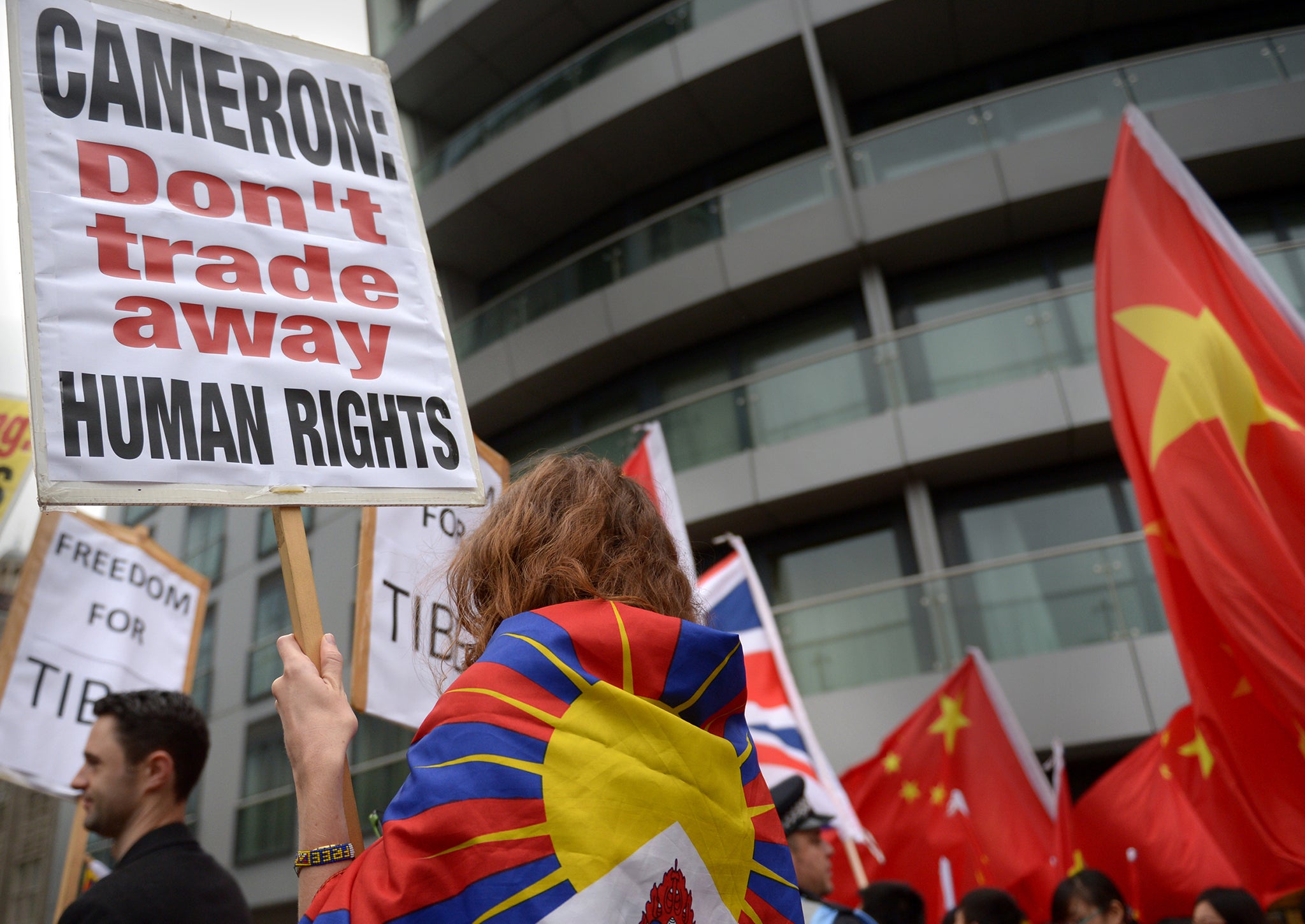Donald Trump is just the latest in a long line of dubious state visitors. It's time the UK used its soft power more morally
Is the Government now willing to cherry pick when the 'will of the people' should be heeded?

More than 1.6 million people have signed the petition calling for ban on Donald Trump’s state visit to the UK; thousands have marched across cities in the country because the public feel that the Government has not made a strong enough stand against Trump. They share one belief: that we have a moral responsibility to stand up to discriminatory policies and that the US immigration ban is not just an American issue, it’s an issue for all of us.
Trump’s planned arrival fits right in with the long tradition of controversial guests on state visits. In 2007, thousands of protesters mingled with tourists outside Buckingham palace ahead of the Saudi King's arrival in Britain. In 2015 we welcomed a regime which targets activists and their family members with harassment, imprisonment and. The Chinese President Xi Jinping was invited to attend lavish banquets on his state visit, despite his country's human rights records and controversial Chinese rule in Tibet. The then Prime Minister David Cameron even took his guest to a local pub for a pint of beer.
Surely, if the King of Saudi Arabia and President Xi Jinping received a State visit, anyone can? Perhaps that’s how we’ve operated up until now. But it’s time for the UK to use its diplomatic power more sensibly when faced with a man who is willing to fire his Attorney General for questioning the legality of his decisions and believes that torture methods such as waterboarding “absolutely work” – despite so much evidence to the contrary.
The UK must now reflect on its moral record around state visits. We should be refusing to roll out the red carpet to leaders and regimes with poor records on arms deals and human rights abuses, and we certainly should not add Donald Trump to that embarrassing growing list of dubious guests.
Theresa May, who in the wake of Brexit is stuck in a very difficult position, is inevitably reluctant to cancel the visit. She has failed to even fully condemn Trump’s immigration ban, unlike the German Chancellor Angela Merkel or Canadian Prime Minister Justin Trudeau. But since then she has had a wake up call: the people’s petition and demonstrations at Downing Street and across other cities expose her citizen’s true feelings.
Is the Government willing to cherry pick when the “will of the people” should be heeded? We rightfully respected the 1.3 million more people who voted to leave the European Union rather than to remain in the union; now it is time we consider the will of the 1.6 million who have signed the petition against Trump’s state visit, a move which has been dismissed and patronised, branded a “populist movement” by some.
Of course we should not ban Trump from Britain entirely. A visit to London to talk about political matters is entirely appropriate for a US President, however controversial, and may even prove useful to us. But a formal state visit and a banquet with the Queen is not befitting of a man who has banned desperate Syrian refugees from his country indefinitely and imposed a ban on Muslims entering the US.
Our Government should instead be constantly reminding Trump that our casual suspicion of Muslims is fuelling terrorist organisations such as Isis. This time last year, Malala Yousafzai, a survivor of terrorism, spoke out against the problem of stereotyping and generalising victims of terrorism in the Middle-East and Africa: “If your intention is to stop terrorism, do not try to blame the whole population of Muslims for it, because [that] cannot stop terrorism.” We should heed her final warning: “It will radicalise more terrorists.”

Join our commenting forum
Join thought-provoking conversations, follow other Independent readers and see their replies